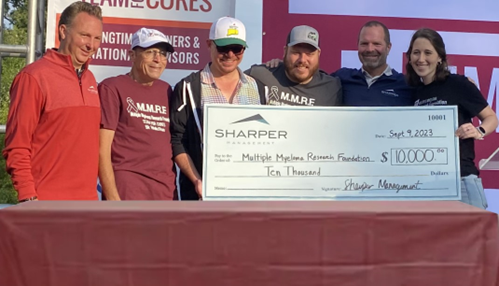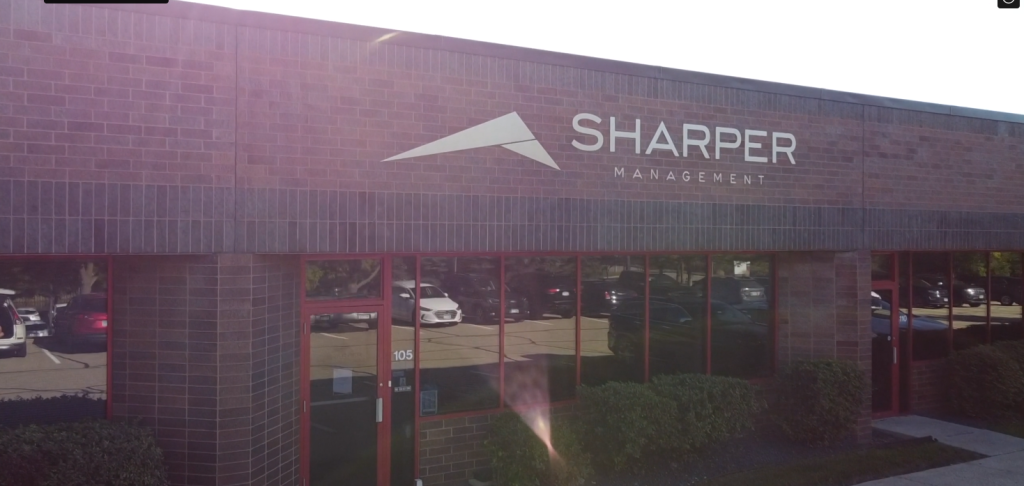Board Training Opportunity – July 24th

The next session in the quarterly series of Board Training opportunities will be held on Wednesday, July 24th, 6 p.m. at the Wells Fargo Plaza, 2nd Floor Training Room at 7900 Xerces Avenue in Bloomington, MN 55431. The 90-minute session will be led by director of business development and education, Josh Reams, CMCA, AMS, PCAM – and will focus on Governing Documents If you are interested in reserving your spot, please email: clientcare@sharpermanagement.com
Rental Management Program

Tracking rental properties within an Association has long been a challenge to both Management and to the Board. “Managing” those Owners that choose to rent by ensuring they abide by any policies the Association might have regarding renting is even harder. It goes beyond the scope of the Management Agreement, and certainly adds further burden to the volunteer Board member experience. Recognizing this issue, Sharper has rolled out a program that adds the necessary resources to help manage this task, while allocating the cost to those creating it (the Owners that rent). This program is in the form of an Addendum to the Management Agreement. If adopted, it engages our rental management staff and gives the following benefits to the Association. Sharper Management will: · Track all rental properties and their Lease terms · Keep file of all Tenant contact information · Ensure all required paperwork is on file (ex: copy of Lease, Addendum, etc.) · Verify compliance with any City requirements (ex: rental license) The costs associated with engaging in this program is charge to the Owners that rent on an annual basis. As a Board, you have the authority to establish fees – and this minor Owner fee creates an opportunity to better manage the rentals in your community. Speak to your Manager or contact Client Care for more information. clientcare@sharpermanagement.com
The Importance of Loss Assessment Coverage

Insurance in an Association can be confusing. One important distinction in your personal homeowner policy package (commonly called an “HO6” policy) is Loss Assessment Coverage. This coverage is typically different from your “Real Property Coverage.” Real Property Coverage should cover your personal contents, coverage of building construction items like flooring and walls that may NOT be insured by the Association’s Master Policy (which can vary greatly by Association) and, at a bare minimum, coverage of all of those covered components up to the Association’s Master Policy deductible. Loss Assessment Coverage is separate and important to understand. At is core, it is actually quite simple. The Association typically assesses the owner(s) for their share of the Master Policy’s deductible in the event of a loss. The homeowner simply submits that letter, stating they’re being assessed to their HO6 carrier, and their HO6 carrier pays out that deductible assessment. *If the owner doesn’t have this coverage, it is out of their pocket and the Association will move to collect on it just as they would any other regular assessment (“dues”) or special assessment. This is becoming increasingly important because, for the past decade, Association Master Policies have had increasing deductibles – sometimes $25,000 or $50,000 on common losses; and almost all Association policies now have a separate percentage-based deductible for a loss related to wind and/or hail damage. This “wind/hail deductible” is often based on the building value and can range from 2-5%. In the case of a hail storm and loss, homeowners are susceptible to significant assessments to help the Association make up the deductible. Let’s go through three scenarios to help understand how Association deductibles work – and how (and why) Loss Assessments Coverage comes in to play. Scenario 1 – Condo Building Water Leak Unit 200 has a backed-up sink that caused water damage to unit 200 and 100 below. The Association has a $10,000 deductible on the Master Policy that has “all-in” coverage. Damage to both units totals $50,000. The Master Policy is going to cut a check to the Association for $40,000 (less the $10,000 deductible). The Association is going to assess both unit owners $5,000 to make up the $10,000 deductible. The Association is made whole on the claim and the loss/damages remedied. Scenario 2 – Fire to a Townhome Unit The end unit of a townhome complex sustains a fire and the unit is destroyed. The Association has a $25,000 deductible on the Master Policy that has “all-in” coverage, less “betterments and improvements.” Damage to unit is a complete loss. Value for the home is determined to be $200,000 to rebuild the unit back to the original specifications. The Master Policy is going to cut a check to the Association for $175,000 (less the $25,000 deductible). The Association is going to assess that homeowner (since it was the only unit affected) $25,000 to make up the deductible. The Association is made whole to rebuild the unit to the original specifications – the homeowner’s HO6 policy covers the personal contents and any “betterments and improvements” that may have been made by the owner, subject to whatever they had for real property coverage. Scenario 3 – Hailstorm to a Townhome Development Now it gets complicated. A 100-unit townhome development sustains a hailstorm and the roofs are totaled. The Association has a 4% wind/hail deductible on their policy and a total property value at $30,000,000. The loss for getting new roofs will cost $3,000,000. The Master Policy deductible for the hailstorm is $1,200,000 (4% of $30,000,000). That means the Association will receive a check for $1,800,000 (less the $1,200,000 deductible). The Association is going to assess every unit owner $12,000to make up the $1,200,000 deductible. The Association is made whole on the claim and new roofs are installed. In each of these scenarios, the Association is assessing the deductible back to the owners benefiting. Scenario 3 is significant, because the Association has to collect $12,000 from EVERY unit owner. It is a vulnerable place for the Association to be in. And it is a vulnerable place for each homeowner to be in if they don’t have Loss Assessment coverage to cover that assessment. Hopefully this is helpful in understanding how Association deductibles work – but more importantly, hopefully it illustrates just how imperative it is that EVERY owner has adequate Loss Assessment coverage as part of their H06 policy package.
Board Tips: Make Your Meetings Matter

There’s no denying that we live in a culture of meetings. The ease and accessibility of virtual meetings have furthered exasperated the reactionary notion of “let’s get together to talk it through.” As we approach the spring/summer season and the cadence of Board meetings increase, step back and consider two things – Frequency and Productivity. Meeting Frequency – how often are you meeting as an association Board? This will certainly vary. Your Governing Documents may dictate a number of meetings to be held within a calendar year. The size and complexity of your community may require more or less meeting regularity. And situational issues or projects may dictate the volume necessity for a “meeting of the minds.” Consider the notion, however, that the more often you meet, the less productive you may be. Fewer meetings force focus – and therefore motivation to have tangible outcomes and measurable initiatives. Consider evaluating your meeting productivity. If you find that decisions are often times delayed or tabled, if your meetings are more social than business, and certainly if you have a limited number of items on your docket, consider having fewer meetings. See how it goes. The results might surprise you! Productivity = Action List – to ensure that the meeting was, in fact, constructive with measurable outcomes, it is helpful to have a summary identifying assigned tasks. Make a list! As Managers, we refer to this as an “Action Item List.” These can even be incorporated into the Meeting Minutes if it reflects a New Business decision or resolution of the Board. Towards the end of a meeting, it is natural for people to just want to get home. Verbally summarizing and capturing, in writing, all action items is imperative. To make your meetings matter, reconsider frequency and have measurables/outcomes. You’ll find the two go hand-in-hand!
Sharper Scramble Golf Tournament – July 26th

Mark your calendar for the 8th Annual Sharper Scramble Golf Tournament, to be held Friday, July 26th at Boulder Pointe Golf Club in Elko. This FREE day of food, fun, fellowship and golf is Sharper’s way of showing our appreciation to you – our valued client – to our Sharper staff and to our trusted vendors. Registration begins at 10 a.m. Shotgun start to the scramble/best-ball format starts at 11a.m. Dinner and an awards banquette to follow the round. If you are interested in securing your spot for the Sharper Scramble, we recommend youdo so soon. Space is limited and tends to fill up fast! To register, email:clientcare@sharpermanagement.com
Board Training Opportunity – April 24th

The second in the quarterly series of Board Training opportunities will be held on Wednesday, April 24th, 6 p.m. at the Wells Fargo Plaza, 2nd Floor Training Room at 7900 Xerces Avenue in Bloomington, MN 55431. The 90-minute session will be led by director of business development and education, Josh Reams, CMCA, AMS, PCAM. This session will focus on defining the roles and responsibilities of the Board, and property management practices. Topics include: · Roles & Responsibilities of the Board· Officer Positions & Duties· Legal Obligations & Protections· Committees· Property Management Practices· Organizational Tools & Tips If you are interested in reserving your spot, please email:clientcare@sharpermanagement.com
Communication is Key: Forging Stronger Communities through Effective HOA Communication

The Foundation of Community Harmony Effective communication lies at the heart of a thriving Homeowners Association (HOA). In this blog post, we will delve into the critical role of clear and transparent communication within an HOA, exploring why it is the foundation for building stronger, more harmonious communities. The Significance of Clear Communication in HOAs Clear communication is the lifeblood of any community, and HOAs are no exception. Your community wants to feel heard, and they also want to feel valued, which does not happen without communication. If you are implementing changes, those changes need to be effectively communicated to establish trust along with cooperation. When people feel left in the dark when it comes to changes, negativity and anger can arise, which is never good. It is important to show through your communication efforts a sense of unity among residents to create a healthy community environment. The Impact on Community Engagement When communication is conducted effectively, community engagement improves along with transparency. Residents will feel more inclined to join community events, participate in discussions and create a sense of belonging. This can even open the door to new initiatives created when people feel like they are in a positive environment to want to make positive changes themselves. Tips for Successful Communication Strategies in HOAs 1. Regular Newsletters and Updates: Explore the power of regular newsletters or community updates distributed through various channels. Sharing consistent information keeps residents informed about upcoming events, policy changes, and other crucial updates. 2. Digital Platforms for Community Interaction: Communication through social media and online forums is another great communication strategy. These channels provide a space for residents to voice concerns, share ideas, and connect with their neighbors. 3. Town Hall Meetings and Open Forums: Town hall meetings and open forums create a platform for direct communication between the HOA board and residents. By creating regularly scheduled meetings can improve transparency and address concerns in real-time. 4. Utilizing Email and Text Notifications: Email and text notifications for urgent updates or time-sensitive information is a great way to keep your community informed. These channels ensure that residents receive critical information promptly. Handling Conflict Through Effective Communication Conflict is inevitable, but effective communication can be a powerful tool for resolution. By effectively communicating the rules set for your community, you leave less room for confusion or interpretation and more room for transparency and guidelines. There can come times when conflicts arise internally between other community members and by having clearly defined rules prevents these conflicts from escalating. Building a Culture of Transparency As mentioned earlier, transparency is crucial to maintaining a healthy community and should be considered a cultural cornerstone within an HOA. Setting a culture of transparency, openness and honesty builds trust among residents. In turn, by being as transparent with residents as possible promotes a positive community atmosphere. Elevating Community Living Through Clear Communication Having successful communication tactics lead to running a healthy HOA. By being transparent with your community through various forms of communication, you keep your residents happy and informed. It is not just a necessity but a catalyst for building vibrant communities. Take advantage of multiple communication strategies from newsletters to open forums. Continual communication efforts are required to maintain a healthy community. Ready to elevate your HOA management? Contact us today to learn more about Sharper Management’s HOA property management services. Sharper Management is a locally-owned, mid-sized property management company offering a full-suite of premiere services to the Minneapolis-St. Paul seven-county area.
Sharper Gives Back

Each year Sharper chooses a cause or organization that will be the benefactor of this annual event. MMRF is a wonderful organization that is “commitment to advancing health equity so that all myeloma patients can benefit from the scientific and clinical advances we pursue. Since our inception, the MMRF has committed over $500 million for research, opened nearly 100 clinical trials, and helped bring 15+ FDA-approved therapies to market, which have tripled the life expectancy of myeloma patients.” Check them out at https://themmrf.org/ “Giving back to our community is one of our core values at Sharper Management,” said Dan Cunningham, owner and CEO. “As with any cancer type, Multiple Myeloma is a devastating condition. Unfortunately, it has affected the family of one of our staff in a significant way. They have found a great resource in the MMRF, though. It means a great deal to us to be able to support them and all of the families affected by Multiple Myeloma.”
A Look Ahead to 2024 & Back at 2023

2023 has been another great year for Sharper Management! To name just a few successes— Continued growth in welcoming 31-new clients. In doing so, we passed a milestone of 200 associations managed. We also continue a strong retention rate of existing clients. We opened a satellite office in Maple Grove. This summer we rolled out significant upgrades to our software platform and web portal offering – perhaps most notably, a wonderful architectural request tracking and approving feature. This winter we will be integrating new software to help streamline the scheduling and management of our maintenance team. We continue our passion for training. We offered four sessions attended by nearly 200 Board members, representing over 60 different associations This spring we also rolled out our Educational Video Library, featuring 90 videos on dozens of different topics. We had another successful Sharper Scramble Golf Tournament and for the first time ever we topped $10,000 in proceeds, which were donated to the Multiple Myeloma Research Foundation. Sharper was also a feature of our industry’s trade organization (Community Association Institute) annual Vision Awards – receiving nine nominations. See Vision Awards article for details. The achievements of 2023 are many. What we continue to be most proud of, however, is the cohesion and growth of our talented team. We welcomed five new managers this year, each of them a seasoned veteran, uniquely talented, with years of industry experience. We also added positions in our Accounting, Maintenance and Client Care departments. And in an industry plagued by retention issues, we continue to excel in our staff retention. As we look to 2024, we have lots of exciting things on the horizon. See the 2024 Event Calendar article below. We look forward to sharing updates with you through these quarterly newsletters. All of us at Sharper would like to thank you for being a valued client. We thank you for being a part of a great 2023 and look forward to an exciting 2024. And, finally, we wish you and your family a safe, healthy and happy Holiday Season! Legislative Changes Effecting HOAs The 2023 legislative session in Minnesota was an active one. There were a number of significant bills that will, and have, impacted community associations in the state. Some legislative items went into effect this year. See our July newsletter for a detailed listing. As we approach 2024, there is one significant bill that effects some standard day-to-day operations and governance of your association. Violations & Rule Enforcement – in effort to create more uniformity in how rule violations are notified, fines assessed and appeals processed, the Minnesota Common Interest Ownership Act (MCIOA) was amended to create further standards. What it Says – any fine associated with a rule violation has to meet seven specific criteria or it could be challenged in a court. Homeowners are also entitled to a more consistent processes for an appeal and hearing of said fine. Who it Affects – all associations that are currently under MCIOA, which is any association built after June 1, 1994 – and any condominium association regardless of when it was established. What it Means – Any fine and certain assessments must be accompanied by a dated, written notice to the Owner that includes seven specific pieces of information. (1) states the amount and reason for the fine or assessment (2) for fines levied under section 515B.3-102(a)(11) [VIOLATION OF GOVERNING DOCUMENTS], specifies: (i) the violation for which a fine is being levied and the date of the levy; and (ii) the specific section of the declaration, bylaws, rules, or regulations allegedly violated; (3) for assessments levied under section 515B.3-115(g) or 515B.3-1151(g) [DAMAGE TO COMMON ELEMENTS OR A UNIT], identifies: (i) the damage caused; and (ii) the act or omission alleged to have caused the damage; (4) states that all unpaid fines and assessments are liens which, if not satisfied, could lead to foreclosure of the lien against the owner’s unit; (5) describes the unit owner’s right to be heard by the board or a committee appointed by the board; (6) states that if the assessment, fine, late fees, and other allowable charges are not paid, the amount may increase as a result of the imposition of attorney fees and other collection costs; and (7) informs the unit owner that homeownership assistance is available from the Minnesota Homeownership Center When it Goes into Effect – January 1, 2024
2024 Sharper Event Calendar

Mark your calendars for the following Sharper events, which are all free to you as a valued client and Board member. Board Training Opportunity – January 24 The first in our quarterly Board Training sessions will be Wednesday, January 24, 2024, 6 p.m. at the Wells Fargo Plaza, 2nd Floor Training Room at 7900 Xerces Avenue in Bloomington, MN 55431. The 90-minute session will be led by director of business development and education, Josh Reams, CMCA, AMS, PCAM. This session will focus on defining associations and association meetings. Topics include: If you are interested in reserving your spot, please email clientcare@sharpermanagement.com 2024 Save-the-Dates Board Training Schedule: January 24 – Board Training: Associations Defined & Association Meetings February 21 – New Client Orientation April 24 – Board Training: Roles & Responsibilities of the Board & Property Management Practices July 24 – Board Training: Associations Defined & Governing Documents July 26 – July Sharper Scramble Golf Tournament August 22 – New Client Orientation & Board Member Appreciation BBQ October 23 – Board Training: Insurance & Financials
